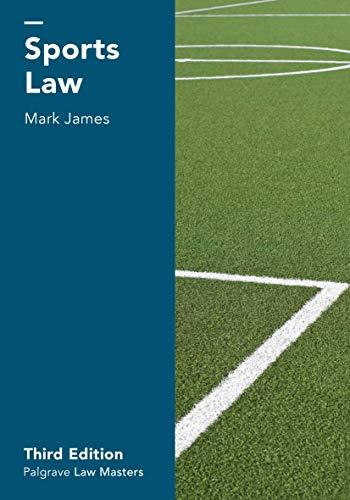Question
In United States v. Moore-Bush , the First Circuit recently held that the government does not need a warrant to place a pole camera outside
In United States v. Moore-Bush, the First Circuit recently held that the government does not need a warrant to place a pole camera outside of a defendant's home. The court considered whether the placement of that camera violated the defendant's Fourth Amendment rights in light of the Supreme Court's landmark decision inCarpenter v. United States.
The breadth of the Fourth Amendment has been hotly debated in the justice system, especially with regard to the impact of advances in technology. The Supreme Court took up this question in 2018 inCarpenter, when it determined that the use of cell-site records maintained by third-party cell phone companies to trace individuals' whereabouts constituted a search under the Fourth Amendment. The Court reached this decision because the records provided the Government with "near perfect surveillance and allow[ed] it to travel back in time to retrace a person's whereabouts," implicating serious privacy concerns.
The facts inCarpenterpresented a tension in Fourth Amendment caselaw between an individual's expectation of privacy in his or her physical location or movements on the one hand, which have generally been recognized as protected, and an individual's expectation of privacy regarding information it has turned over to a third party on the other, which historically has not been protected. SinceCarpenter, Courts have had to interpret the case's holding while also considering the earlier Fourth Amendment caselaw that limit privacy protections for actions taken in public view.
InMoore-Bush, the most recent case, the First Circuit overturned the district court's decision to suppress evidence obtained from a pole camera (a ruling that came as a relief to law enforcement.) The First Circuit stated in Moore-Bushthat the Supreme Court inCarpenter"was concerned with the extent of the third-party exception to the Fourth Amendment law of reasonable expectation of privacy and not with the in-public-view doctrine spelled out inKatzv. United Statesand involved in this case."
Question:
While the Court did not tackle the "in-public view doctrine" as an argument in a Supreme Court case in the last year, do you think that pole cameras in public space are an invasion of privacy? Why or why not?
Step by Step Solution
There are 3 Steps involved in it
Step: 1

Get Instant Access to Expert-Tailored Solutions
See step-by-step solutions with expert insights and AI powered tools for academic success
Step: 2

Step: 3

Ace Your Homework with AI
Get the answers you need in no time with our AI-driven, step-by-step assistance
Get Started


